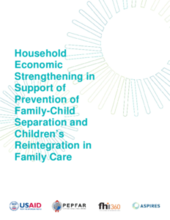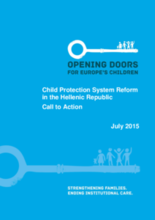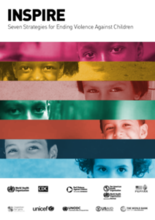Demographic Data
|
Sources: World Bank, UNICEF, UNDP HDR 2015, DHS 2011 |
Displaying 11341 - 11350 of 14389
This paper presents an overview of learning related to the prevention of family-child separation, the reintegration of children into family care, and economic interventions that support both.
This paper presents a policy position which argues that, “as the Greek authorities map out the road to long-term recovery, several key steps to reform the child protection and care system should be taken as a matter of priority.”
Government officials of the Central Child Welfare Board (CCWB) of Nepal raided an orphanage in Kathmandu that was run by an NGO, according to this article from the Rising Nepal.
This review is a systematic research synthesis of randomized impact evaluations of NGO-implemented interventions in low-income countries that work to build income and/or economic assets either of the caregiver, the household, or the individual child, adolescent, or youth, where the evaluation looked at any child-level or youth-level outcomes.
A new bill has recently been introduced in the United States Senate which would require school districts and child welfare agencies to work together to keep children in their original school when it is in their best interest.
Save the Children in Bangladesh, the International Organization for Migration, Plan International- Bangladesh, Winrock, the Bangladesh National Women Lawyers' Association (BNWLA) and United Development Initiatives for Programme Actions (UDDIPAN) organised a national convention for reducing the impact of unsafe migration on children in Bangladesh. This article presents a summary of the panel discussions as well as the recommendations and draft declaration that came out of the convention.
After more than seven years of program implementation and research, the STRIVE program is coming to an end. To mark the end of this program, USAID and FHI 360 are hosting a closing event that will reflect on program learning.
INSPIRE is an evidence-based resource for everyone committed to preventing and responding to violence against children and adolescents. It represents a select group of strategies based on the best available evidence to help countries and communities intensify their focus on the prevention programmes and services with the greatest potential to reduce violence against children.
On June 29, 2015, the CPC Learning Network hosted a webinar focused on the experience of developing, piloting and refining a child protection index.
Family for Every Child is recruiting a Regional Coordinator for a Learning Network on Recovery and Reintegration from Child Sexual Exploitation in Sub-Saharan Africa.



